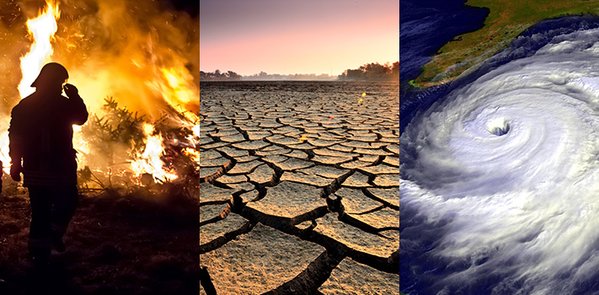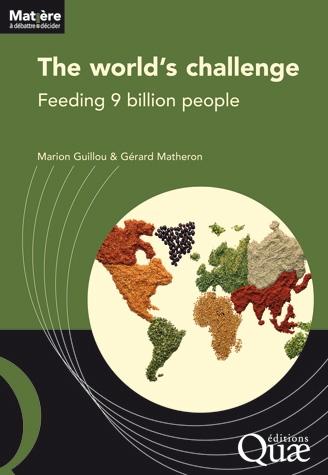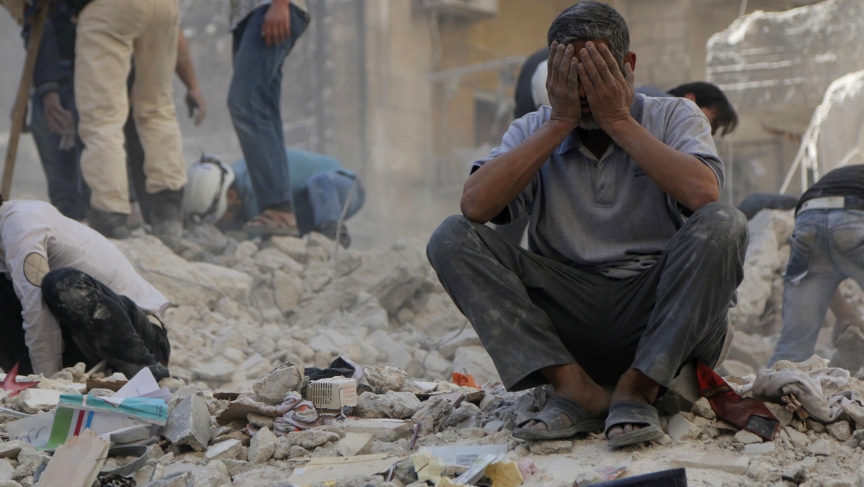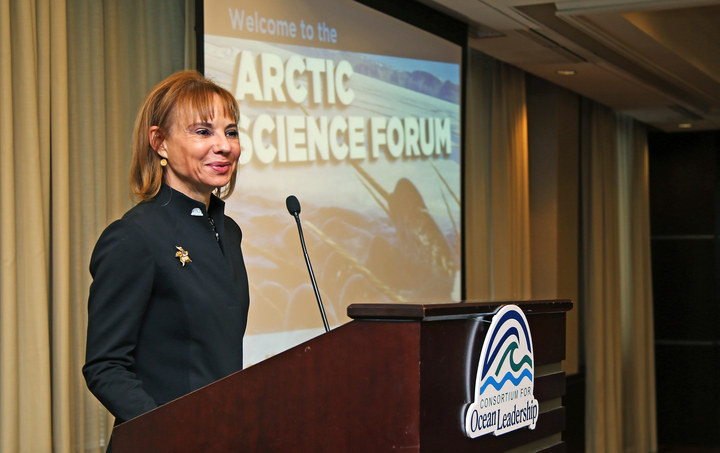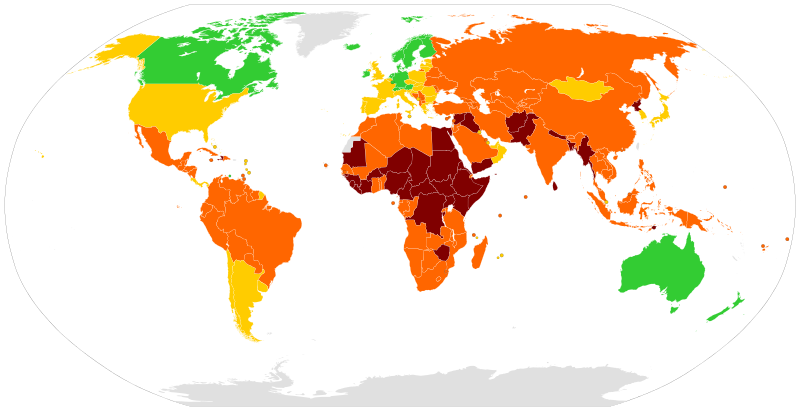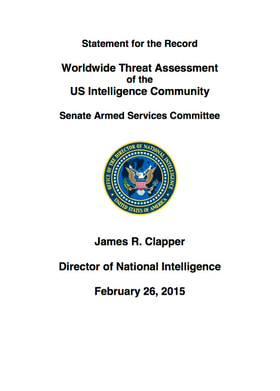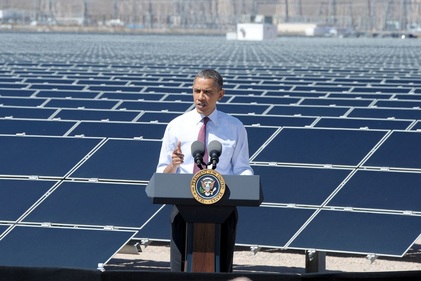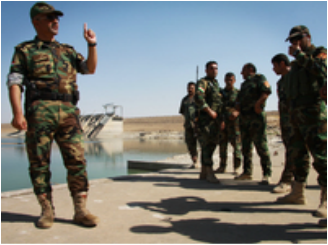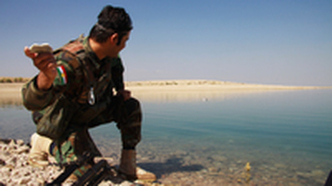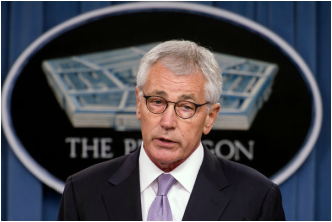SECURITY:
Security involves many things from security in your person to emotional security. Today the world is threatened on many fronts. Resource depletion may result in loss of material for manufacturing or agriculture. Climate change may result in a loss of dependable precipitation for food and water. Rising seas means erosion and loss of security against storm surges, floods, and erosion. Increasing temperatures can mean vulnerability to forest fires and species migration that destroy crops and bring unfamiliar diseases. Security can also mean war and civil strife. Loss of security can destroy resilience and the ability to adapt to change.
___________________________________________________________________________________________________________
___________________________________________________________________________________________________________
|
CLIMATE AND SECURITY 101 - a project of the Center of Climate and Security: "Climate change, in both scale and potential impact, is a security risk that will affect our most basic resources, from food to water to energy. Preparing for climate risks requires a much better understanding of the nature of the threat. The Climate Security 101 project aims to answer the most frequently asked questions regarding the nature of climate risks to security, as well as act as a clearinghouse for the latest climate security research and policy documents."
THREAT MULTIPLIER: Climate change needed a catch phrase to change the argument from an environmental bipartisan standoff to national security. Instead of threatened Polar Bears or Al Gore's "Inconvenient Truth" a simple turn of phrase has changed how we view a warming planet. Much of the Middle East is projected to be uninhabitable in the next few decades as temperatures rise well above already scorching summer norms. It isn't just the Middle East — 40% of the world's nations are projected to suffer water shortages if warming remains unabated. FEEDING 9 BILLION: This is an excellent website to research the issues, policy and action on food security here and around the world. Let’s Not Say Climate Change Causes War. But Let’s Also Not Ignore the Real Security Risks: Climate change is a threat-multiplier and not the direct cause for conflict. Let's not let governments and agents off the hook for causing conflict when negotiation and coordinated mitigation would have been the better solution. Failed governments and those who take advantage of strife for other motives are the major cause of conflict.
Center for Climate & Security explains why climate change is not separate from issues of failed states or regional strife. "Is Climate Change the Biggest Security Threat?" is the wrong way to ask the question if you want a meaningful answer. The issues of failed states, security and climate change are not independent but interactive. New Report: The U.S. Asia-Pacific Rebalance, National Security and Climate Change: A "rebalance" of the U.S. role in the Asia-Pacific region will require broadening alliances, helping regional security and prosperity in the face of potential catastrophic climate changes. Strategic policy will have to look at climate resilience of the regions diverse nations. A new report has just been released from Oxford.
SEA CHANGE- Evolving maritime geopolitics in the Indo-Pacific Region: "The US-based Stimson Center partnered with India’s Observer Research Foundation (ORF) to launch a research initiative analyzing the maritime policy challenges and opportunities arising across the Indian Ocean and the Western Pacific as these areas emerge as central theaters of 21st century geopolitics In particular, the project aimed to illuminate the evolving role that the waters, shipping lanes, and natural resources of the Indo-Pacific will play in shaping relationships between major regional and extra-regional powers while also examining the various ways that energy exploration and exploitation, infrastructure development, and environmental pressures will impact the Indo-Pacific lit- toral in the coming years and decades."
The International Institute for Strategic Studies is a world-leading authority on global security, political risk and military conflict. The IISS is a EU strategic planning organization that evaluates risks and conflicts on a global scale. They offer many publications that relate to climate, extreme events and their impacts on economies and security. Recently they have published Arctic Opening- Insecurity and Opportunity to assess the opening of the arctic as the polar cap disappears.
Worldwide Threat Assessment of the U.S. Intelligence Community: Report by the Senate Armed Services Committee (Feb. 26, 2015)
This declassified assessment addresses both global and regional threats. Of particular interest here is what is called Economics and Natural Resources threats on the global scale. Population; disease; water and land use and control; food shortages, migration are all destabilizing threats. The greater multiplier of these threats is "Extreme Weather Exacerbating Risks to Global Food and Water Security." CONTINUOUS CLIMATE AND SECURITY UPDATES HERE: JOIN THE DISCUSSION: How to Address The Fragility Risks Climate Changes Poses - Live Twitter Chat 25 June 2015 / 10-11 am EST
Other Topics: Ethiopia and Syria; Pakistan and "Backdraft"; G7: Climate Change, Security and Fragility as a Foreign Policy Priority. |
|
Obama To Warn Coast Guard Cadets Climate Change Security Threat: "This is not just a problem for countries on the coast or for certain regions of the world. Climate change will impact every country on the planet. No nation is immune," the president will announce at Academy commencement ceremonies. " So I am here today to say that climate change constitutes a serious threat to global security, an immediate risk to our national security, and, make no mistake, it will impact how our military defends our country. And so we need to act-and we need to act now." Recently President Obama has linked climate change to health issues, the economy, emergency preparedness, and social stress as a precursor to terrorism and security. With a recalcitrant Republican opposition in the House and Senate, the President has had to rely on his Executive powers to move on climate change issues.
Photo credit: Sempra U.S. Gas and Power |
Gen. Petraeus: Climate Change remains a threat: America on the way Up; The short term economic picture under Obama looks pretty encouraging. Unemployment is down, deficits are less, gas prices have plummeted, citizen debt is down and consumer confidence is rising. However, these are merely a "...soothing veneer..." on top of a troubled picture. Many see America in decline and the middle class adrift and much of the world in shambles and political unrest. America is not in retreat though the middle class has taken it on the chin. In fact the country is in better shape to weather the coming storms than nearly every other nation. We must not be complacent. There is much the the U.S. needs to do to stave off the potential for abrupt changes in the future. Climate change remains a threat and a greater threat to weaker more vulnerable nations and regions of the world. The potential for destabilization is increasing and with that, the threat to American security increases.
Top Ten: Climate and Security for 2014: The past year we have seen crises in Africa, Middle East, Eastern Europe and the Asia-Pacific but also progress in climate change and security. The Center for Climate & Security reviews the top 10 of 2014.
Prof. David Battisti - CLIMATE CHANGE AND GLOBAL FOOD SECURITY (YouTube): Presented at the seventh 2014 "Our Changing World Lecture Series" at the University of Edinburgh. David Battisti is a Professor at the University of Washington, U.S.A.
THE CENTER FOR CLIMATE & SECURITY-EXPLORING THE SECURITY RISKS OF CLIMATE CHANGE: This site is operated by an Advisory Board of retired Admirals and Generals. It is an excellent source of information on climate and security issues domestically and internationally. There you will find links, articles, and reports from the Department of Defense and all military branches.
"But the challenge of global climate change, while not new to history, is new to the modern world. Climate change does not directly cause conflict, but it can significantly add to the challenges of global instability, hunger, poverty, and conflict. Food and water shortages, pandemic disease, disputes over refugees and resources, more severe natural disasters - all place additional burdens on economies, societies, and institutions around the world." Secretary of Defense Hagel at Halifax International Security Forum Nov. 2013
MANAGING RISK IN AN ERA OF IRREVERSIBLE CLIMATE CHANGE: "The latest synthesis report from the Intergovernmental Panel on Climate Change (IPCC) re-issued some dire warnings. These include significant risks to food security, and the increased probability of conflict that could occur as climate change amplifies other known drivers of conflict, such as 'poverty' and 'economic shocks." The significant takeaway from a security point of view is that climate change is very close to "severe, widespread and irreversible" damage that will continue for centuries as anthropogenic emissions increase. The world must face the fact that we are facing a warmer and more insecure planet.
"FOUR - STAR WARNING: U.S. Military Refuses to be 'Too Late' on Climate Change: As a follow up to the DoD's "Climate Change Adaptation Roadmap", General Anthony Zinni, USMC (ret), former commander-in-chief of the U.S. Central Command; General Ron Keys, USAF (ret), former commander of the U.S. Air Combat Command; and Admiral Frank "Skip" Bowman, USN (ret.), former firector of the Naval Nuclear Propulsion Program and deputy administrator for Naval Reactors in the NNSA have co-authored an Op-ed titled: "DoD knows Climate Change factors into fight".
|
MIDEAST WATER WARS: In Iraq, a Battle for Control of Water; In the desert it's the water that means life or death. Behind the headlines there is a war going on in the Middle East. Key to the brutal slaughter for a religious state to cover Iraq and Syria is control of precious water supplies. Much of the fighting is for control of dams that manage the two great rivers where civilization began. The Tigris and Euphrates rivers control irrigation and drinking water for millions. The Mosul Dam on the Tigris is already unstable. If any of these dams are damaged or fail a wall of water rushing downstream would kill tens of thousands and require years to rebuild with commensurate loss of agricultural production and food shortages. The Mosul Dam also provides critical electricity. If lost power would be cut off dozens of towns and cities and millions of people.
Photo credit: Alice Fordham MILITANTS IN IRAQ SEEK CONTROL OF PRECIOUS WEAPON: Dams, Waterways; Abandoned by the Iraqi Army early in the fighting with Sunni militants now called Islamic State, Peshmerga soldiers from the semi-automomous Kurdish area now guard the precious Mosul dam. Brig. General Mohammad Ali Mughdeed commands the soldiers protecting the dam. In May Islamic State militants emptied a series of irrigation channels. By flooding or starving downstream cities and farms of water you can drown or starve tens of thousands. Who controls the water controls the land.
Photo credit: Alice Fordman |
|
PENTAGON SAYS GLOBAL WARMING PRESENTS IMMEDIATE SECURITY THREAT: (October 13, 2014) "The Pentagon released a report Monday asserting decisively that climate change poses an immediate threat to national security" Defense Secretary Chuck Hagel spoke Monday announcing that Climate change poses an immediate and ongoing threat of increased risks of terrorism, infectious disease, poverty and food shortages. The military will be increasingly tasked with disaster relief and responses to extreme weather events like storms and droughts. The Department of Defense must rethink infrastructure and the ability to respond and move supplies.
Further information available at: The White House Blog |
_______________________________________________________________________________________________
An Editorial View from <http://climatecrocks.com/>
An Editorial View from <http://climatecrocks.com/>
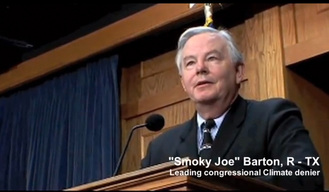
This YouTube is editorial but it does show a representation of both sides of the climate/security debate and who some of the parties are: "Climate Denial Crock of the Week - Climate Change and National Security - Part 2" (VIDEO)
